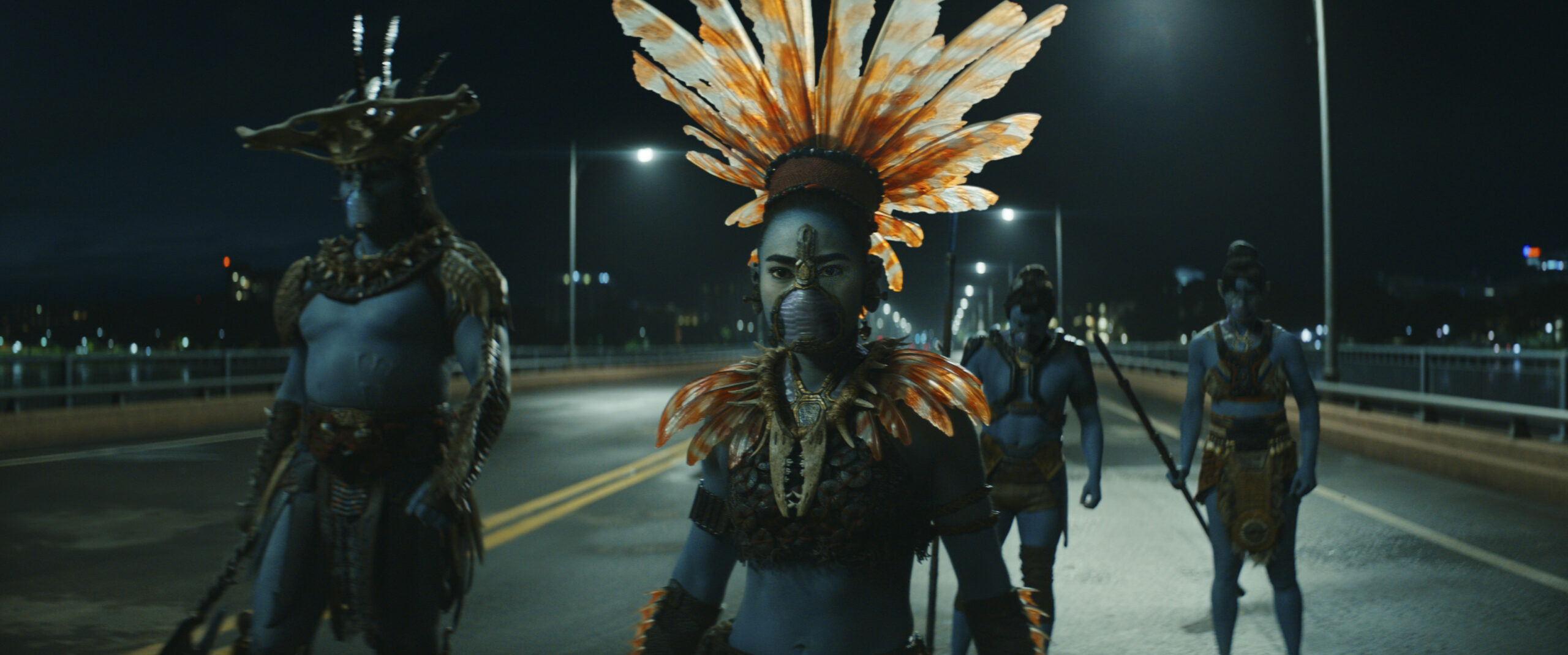At this point, you’d have to be living under a rock to not know about the Black Panther sequel, Black Panther: Wakanda Forever, which premiered earlier this month. The movie has been widely regarded by fans of the original film and the Marvel franchise as a tribute to the late Chadwick Boseman, who played the titular role. For Latinx fans, however, it felt like a tribute to our roots, our history, and our culture. Since the film’s announcement, the producers made it clear that the plot would revolve around Latin American Indigenous-inspired characters, played by Latinx actors.
During the press tour, we got to meet and fall in love with the beautifully diverse Latinx cast. There’s Mexico City-born Kenyan actress Lupita Nyong’o back, reprising the role of Nakia. We’ve seen TikTok after TikTok (most of them incredibly thirsty, but I can’t say I blame the creators) and interview after interview of 41-year-old Ecatepec, México native, Tenoch Huerta, who plays Namor. And Mabel Cadena (the 32-year-old actress from Atizapán, México, who plays Tlaokan warrior Namora) has graced various magazine covers (my personal favorite to date has been her ELLE México cover, it is absolutely stunning!). These two have gotten all this positive press with good reason: they’re incredibly talented and they represent darker-skinned Latinos, who come from “el barrio” — and are not Scandinavian-looking Mexicans as Tenoch recently said in an interview — in one of the world’s largest, if not the largest, movie franchises of the world.
However, as impressive as Mabel, Lupita, and Tenoch are they’re not the only Latinx talent in the film. We have Venezuelan actor Alex Livinalli, Mexican Mayan actor Josué Maychi, Guatemalan actress María Mercedes Coroy, and Guatemalan actress María Telón.
In Black Panther: Wakanda Forever, Indigenous actors play Indigenous roles while speaking a native tongue, Yucateco Maya. It’s important to note that, there is not one single “Maya” language, just like there is no single “European” language. Instead, there are several that vary from region to region. The one featured in Black Panther: Wakanda Forever is the dialect spoken in the Yucatán Peninsula in Mexico. I can’t even count the number of TikTok reaction videos I’ve seen of Native teens brought to tears after hearing their language spoken correctly by actors in a movie theater.
The correct pronunciation of the Mayan spoken in the film was no accident, by the way, as actor Josué Maychi served as the cast’s coach. “It can’t just sound like Maya, you have to speak Maya” he’d say in coaching sessions with Mabel Cadena, “if my mom can understand you speaking Maya, then we can move on to the next line”.

Latinx artists aren’t just represented in Wakanda Forever’s cast. The official soundtrack is also filled with Mexican and Native artists sharing their voices and talent with the world. Some of the artists that stand out in the soundtrack are Vivir Quintana (who wrote the famous feminist hymn ‘Vivir Sin Miedo’), Mare Advertencia Lirika, Snow The Product, Foudeqush, Calle x Vida, ADN Maya Colectivo, Alemán, Blue Rojo, and Guadalupe de Jesús Chan Poot, whose poem/song Mi Pueblo in Yucatán Mayan gives me chills in the best way possible.
Yes, we had Salma Hayek, who is one of the world’s most recognizable Mexican women, star in The Eternals a few years ago, but this time the representation feels different, bigger. Finally, Indigenous and darker-skinned Latinx are being given their time in the spotlight = the cultures and stories that many of us grew up with are finally being put on the pedestal it deserves. The stories that are never shown on TV and in film are finally being told in a respectful way, in a way that can make us proud and joyful.
Honestly, I’m keeping my fingers crossed that the rumors about a Namor film or TV series are true. I know I’m not the only one who’s ready to get more of Namor and the Talokan on my screen.

